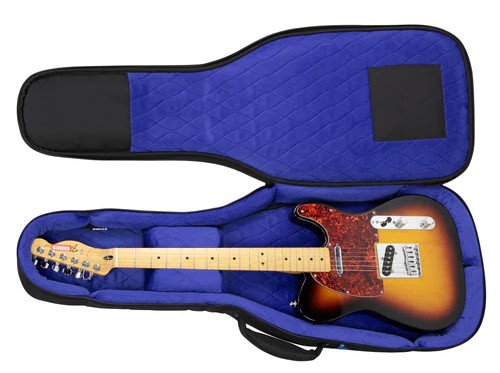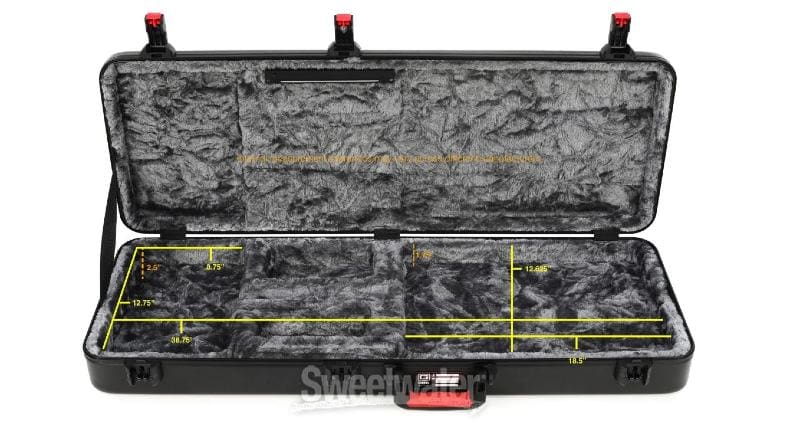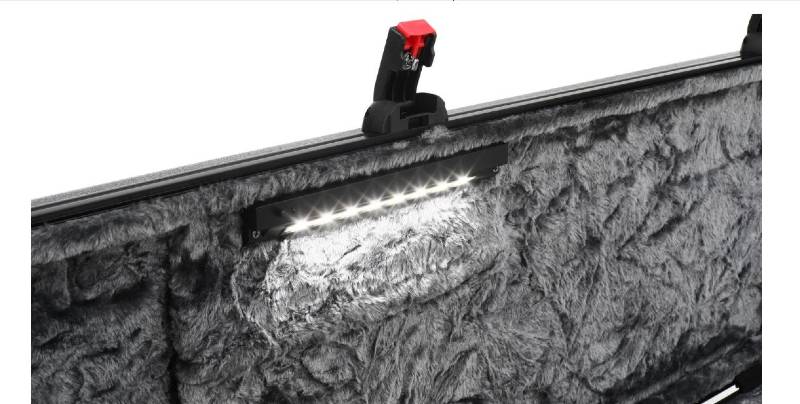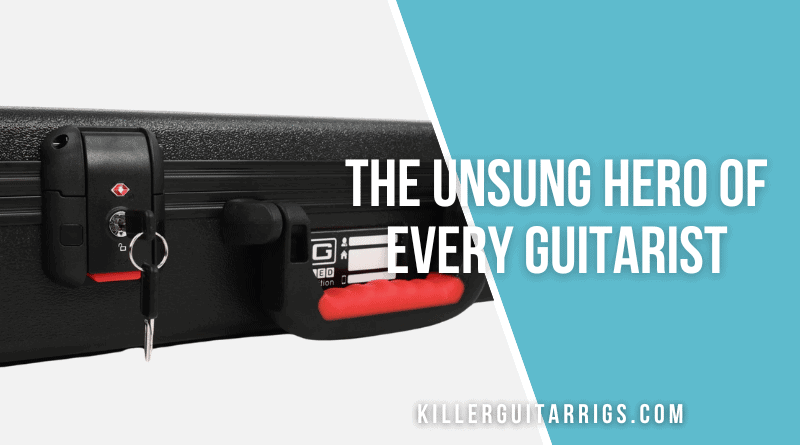During a recent KGR team catch up, the topic of guitar price increases came up, which led us to thinking – in many cases, people are paying as much as, if not more than a car for their guitars, and yet, they are most likely totally uninsured. This is even crazier when you stop to think about just how vulnerable guitars can be to serious, and in some cases, irreparable damage.
So, if we’re not insuring our guitars, what more can we do to protect our investments? What if we told you the answer laid in a one time purchase, no fees, no deductible, and no paperwork? Not only that, but our solution also means you’re extremely unlikely to damage your guitar in the first place, which is really the ideal situation.
In this KillerGuitarRigs special, we’ll take a look at why guitars are so badly exposed to damage, and we’ll offer up a solution for eliminating the risk.
The Good, the Bad, and the Gig Bag

The vast majority of new guitars arrive in a well padded box, but once you’ve opened it up, what comes next?
Some guitar manufacturers have recognized that unprotected guitars quickly become broken guitars, and as such include gig bags with their guitars. The quality of the gig bag varies wildly between manufacturers, and ranges from well padded hybrid cases, through to ultra flimsy sacks, which offer little more protection than a grocery bag would.
If you’re looking at a high end guitar, you might even be lucky enough to get a hard sided case, but those cases are getting rarer and rarer. It wasn’t so long ago that every Gibson came in a hard case with the famous pink blanket. Now you’re looking at splashing out $3k on a Les Paul Standard before they give you anything more than a Pleather gig bag – a sign of the times indeed.
What’s the Alternative?

As we mentioned, while some manufacturers include a gig bag, and sometimes even a hard sided case, you’re still not doing all you can to protect your investment. So, what’s the answer?
What you really need to do, is to consider buying a quality aftermarket case.
There are a number of borderline indestructible guitar cases on the market, and while some of them offer great protection, they aren’t necessarily as full featured as the others.
One option we really love is the Gator TSA Series Electric Guitar LED Edition. At around $220, it sits right about the middle of the price spectrum when it comes to hard cases, and yet it’s absolutely loaded with little touches that make the clear choice over your branded case or gig bag.
Even if you’re lucky enough to get a hard case with your guitar, the vast majority are fitted specifically to the guitar you buy. This can be limiting in a number of ways. First off, the case may well be limited to carrying just that one guitar, or rather, that style of guitar. Second, the storage space in fitted cases is next to none existent. Third, and probably most important, is the fact that guitars in fitted cases are more susceptible to damage as the outside world is much closer to the most vulnerable part of the guitar – the neck.
The rectangular design of the Gator TSA Series case means that it can comfortably fit a wide range of guitar styles including Strats, Les Pauls, Teles, and pretty much any other non “extreme” guitar style. There’s acres of storage space inside, giving you plenty of room for all your accessories, and the neck is positioned well away from the edges of the case. Most impressively, the molded polyethylene exterior is built to military and ATA spec – this should be a huge confidence boost for anybody with particularly delicate guitars.

If you’re thinking of traveling with your guitar, you might well intend to keep it with you as carry on – but what happens when your plane’s overhead storage bins are too small to accommodate a guitar? You might have no option but to gate check, and if you’ve shown up to the airport with a branded hard case, or worse, a gig bag, this might be the last time you see your guitar in one piece. We don’t think we need to explain just how little chance a guitar in a gig bag stands against an enthusiastic baggage handler, but that’s not the only problem you’ll have.
Should your guitar get checked, and you’re traveling anywhere within the USA, it becomes subject to search from the TSA, or Transport Security Administration. In order to conduct their searches, they need access to your bags – and if they don’t have a master key, they’ll literally smash the case open to see what’s inside – and they’ll give no guarantee that it’ll ever close properly again. Bad news indeed if you’re not at the end of your journey. The Gator TSA Series case solves for this by including TSA approved locks. If you’re lucky enough to be selected for a random search, they’ll be able to open it up without causing damage, and they’ll close it and lock it again afterwards, too.
One thing that anybody who’s toured with a band will tell you is that beside not having any meaningful storage space, a standard case or gig bag also offers absolutely no room for making any adjustments on the go with your guitar. String changes, intonation, bridge or pickup height, any of the little things you might want to do to tweak your guitar are going to involve taking it completely out of the case and (hopefully) finding somewhere safe to do it. Gator TSA cases leave plenty of room to maneuver around the guitar, and lots of space to put tools down without them having to touch your guitar. It even features a handy LED work light, which is super useful when you need to do anything to your guitar backstage or side stage.

Conclusion
So many of us think constantly about upgrading our gear, but we give so little thought to the less exciting essentials. Sure, a case isn’t going to get your friends excited, you’re not going to have to deal with people asking to hold it or try it out, but it will bring the kind of peace of mind you’d never get from a gig bag or hard case that comes bundled with your guitar, and that feeling of security is absolutely priceless.


